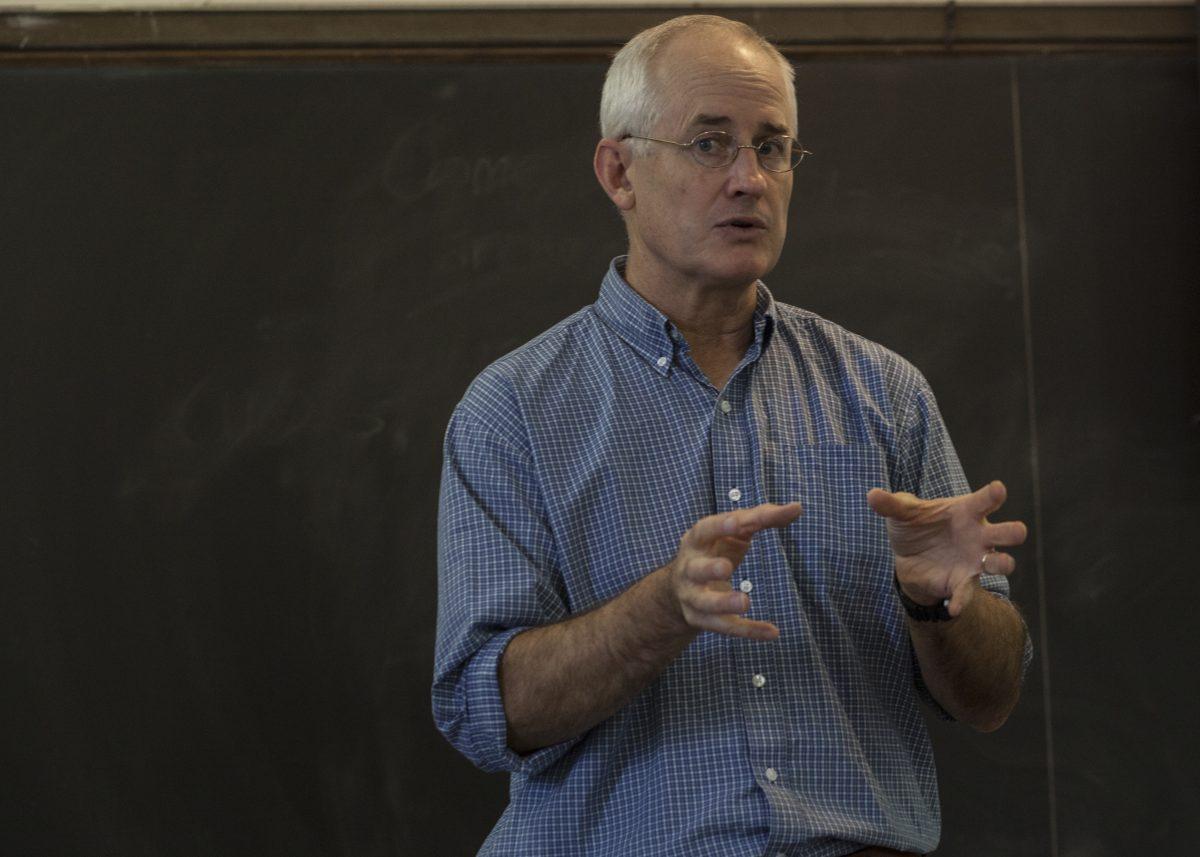At Convocation, Provost Andrew Shennan mentioned the possibility of faculty reduction throughout the 2016- 2017 school year. These reductions will most likely affect the number of tenure-track appointments made by the College, as these appointments are more permanent and require a more extensive hiring process. As most students are unfamiliar with the process of hiring and promoting faculty, this announcement was met with confusion and concern.
“One of the things I really love about Wellesley is the small class sizes. If we cut professors I worry that we would compromise that,” commented Sabina Unni ‘18.
While many students consider professors to be of a singular category, there exist many key distinctions in the profession. Most recently hired professors seek tenure because a professor with tenure has job security and benefits that an untenured professor does not. Furthermore, tenure allows a professor to transfer to another institution with a degree of stability, and to expect a similar salary.
After a probationary period of approximately seven years at Wellesley, an assistant professor who is on the tenure track may be granted tenure after exhibiting exemplary aptitude for both teaching and research. According to Nicholas Doe, Senior Instructor in Chemistry Laboratory and a member of the College’s Advisory Committee on Academic Staffing, “promotion to tenured status depends on scholarly research and teaching.” However, not all professors who are hired by the college are on the tenure track. These professionals are given the title “Non-tenure track adjunct Assistant Professors.” Doe states that those not on the tenure track are hired “with no expectations of ever being granted tenure.”
Furthermore, instructors, senior instructors, and visiting lecturers that are hired by the College are also not on the tenure track. With contracts that range up to five years in length, the people who hold these positions are hired with the knowledge that their main responsibilities include teaching and the instruction of students, but not necessarily conducting research. These positions also do not require the level of education that professorships do, as one is not required to have their PH.D.
Gaining tenure does not ensure that a given professor is at the highest level of the profession, however. At Wellesley and similar institutions, a newly tenured member of the faculty is an Associate Professor. Doe notes that one is promoted to Full Professor “upon displaying outstanding work in their field.”
The potential decrease in both tenured Associate and Full Professors has current faculty members worried. Russian Professor Thomas Hodge commented, “The administration has decided that the faculty must shrink. They have promised to do this in as painless a way as possible. So far, I have heard reassurances that the shrinkage will be largely achieved by the non-replacement of retiring colleagues. I worry a little bit though because obviously the retirement patterns across campus are going to affect all departments and programs in a random fashion and it is hard to believe that retirement is going to be the only tool used to shrink the size of the faculty.”
The College is not alone in its staffing reductions. Institutions of higher education across the country have been cutting funding in this manner. The University of Chicago, Western Illinois University, and the University of California at Berkeley are a sampling of many universities facing major layoffs. In many of these institutions, these layoffs and financial drawbacks have most prominently affected students and faculty within the humanities. However, faculty members such as Russian Area Studies Professor Thomas Hodge remain confident that the humanities will maintain a distinguished place at Wellesley College.
“I am optimistic because we have recently created a new committee, the staffing committee composed of faculty and senior staff that will chart the course for the moves that are going to be made, and that committee is composed of faculty in equal numbers from social sciences, humanities, sciences,” Hodge commented.
As the building director for both Founders and Green Hall, Hodge also works extensively towards promoting the visibility of the humanities at the College. From making calendars of events happening in the humanities to creating tools to aid prospective humanities students, Hodge works to spread campus-wide enthusiasm and appreciation for the humanities. Thus, the presence of the tenured faculty that propels the humanities enterprise at Wellesley is crucial for its ultimate success.
Hodge also commented on the complementary nature of different academic disciplines, concluding that “It is my strong belief that all three of our divisions are crucial to one another. That the humanities makes scientists better scientists, that science makes humanists better humanists, and that both of those divisions make social scientists better and vice versa.”






